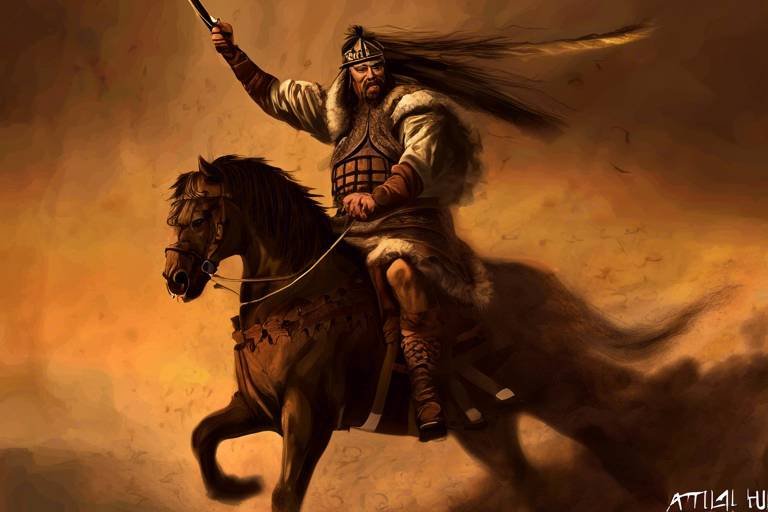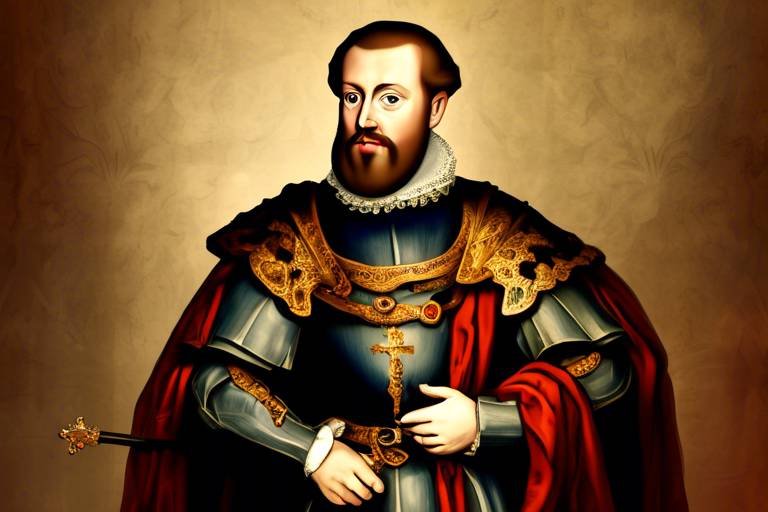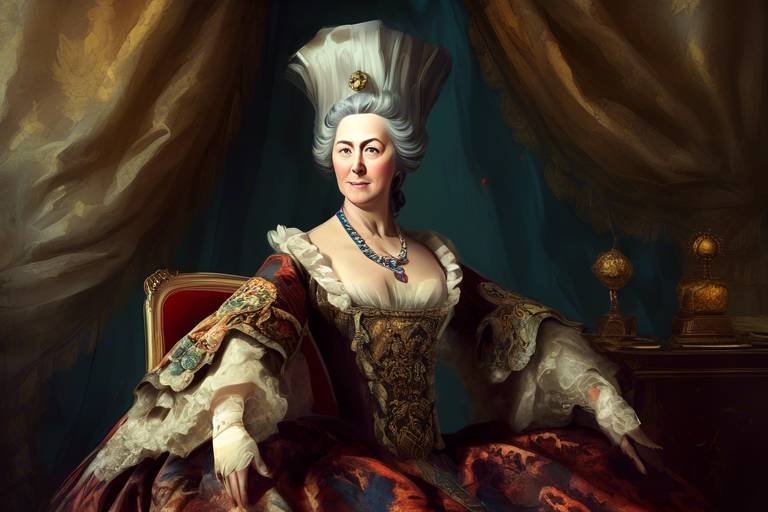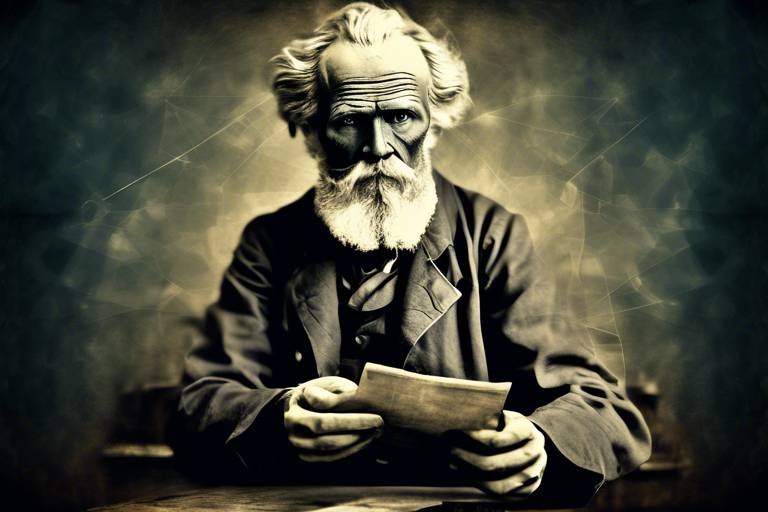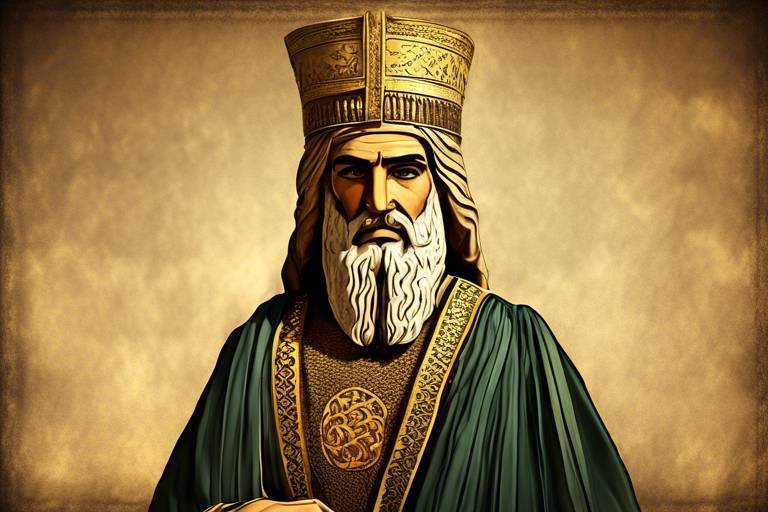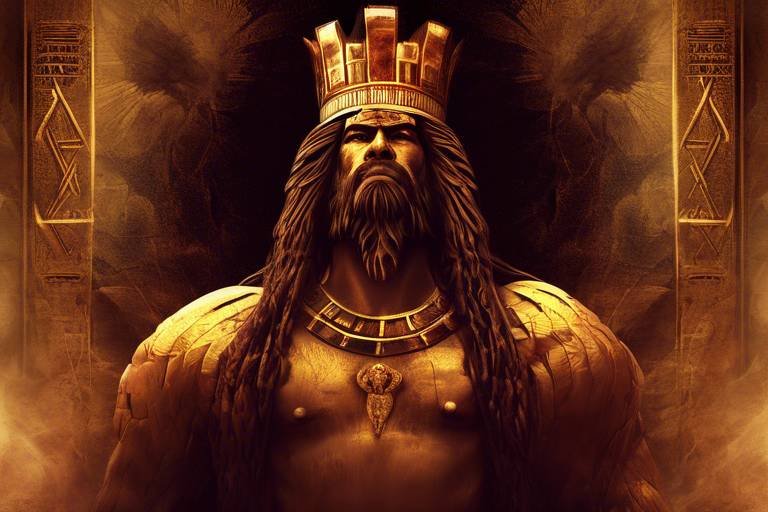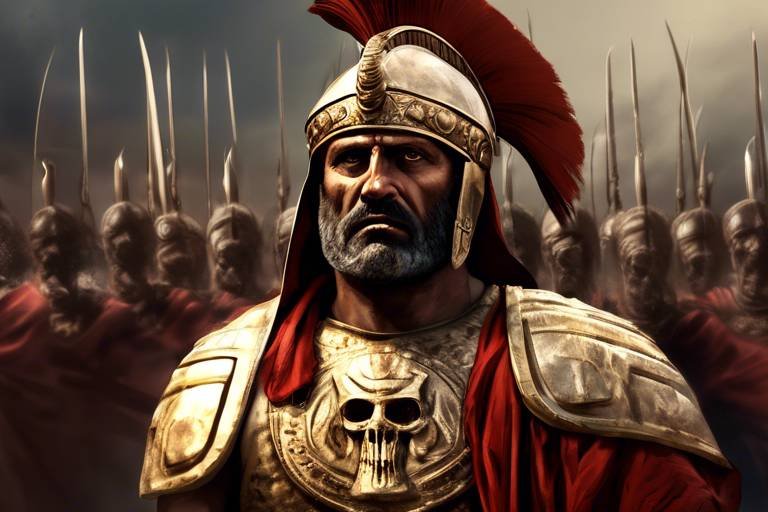George II: The King of Great Britain
George II, the monarch of Great Britain from 1727 to 1760, was a figure whose reign left a lasting impact on the country's history. Ascending to the throne at the age of 43, George II's early life and upbringing shaped his approach to governance and leadership. Born into the House of Hanover, his family background and the circumstances that led to his becoming king in 1727 played a significant role in defining his rule.
Throughout his reign, George II was influenced by various political figures and advisors who shaped his policies and decisions. His foreign policies and alliances were crucial in navigating the complex geopolitical landscape of the time. One of the key events during his rule was the War of the Austrian Succession, where George II played a notable role in shaping the outcome of the conflict and its repercussions on Great Britain and Europe.
The Seven Years' War, another significant global conflict during George II's reign, further tested his leadership and the resilience of the British Empire. His involvement in this war and the consequences it had on the empire highlighted the challenges and opportunities faced by Great Britain on the world stage.
On the domestic front, George II implemented various policies and reforms that aimed to strengthen the economy, society, and governance of Great Britain. The Jacobite Rebellions posed a threat to his rule, but George II's response to these uprisings showcased his determination to maintain stability and order within the kingdom.
Amidst the political and military challenges, George II's reign also witnessed significant cultural and intellectual developments in Great Britain. The flourishing of the arts, literature, and science reflected the vibrant intellectual atmosphere of the time and contributed to the country's cultural legacy.
Assessing George II's legacy, it is evident that his reign had a lasting impact on the monarchy and the nation as a whole. Remembered for his political acumen, military leadership, and contributions to the cultural landscape of Great Britain, George II's legacy continues to be studied and debated by historians and scholars.

Early Life and Ascension to the Throne
George II, the monarch of Great Britain from 1727 to 1760, played a significant role in shaping the country's history during his reign. Let's delve into the life and impact of this influential ruler and explore the key events that defined his time on the throne.
George II's journey to kingship began with his upbringing and family background. Born in Hanover, Germany in 1683, he belonged to the House of Hanover, a prominent European dynasty. His father, George I, later became the King of Great Britain in 1714, marking the start of the Hanoverian rule in the country.
Despite being born into royalty, George II's path to the throne was not straightforward. He faced challenges and political intrigues within the royal family. In 1727, at the age of 43, George II ascended to the British throne following the death of his father, George I. This transition marked a pivotal moment in his life, propelling him into a position of power and authority.
George II's ascension to the throne was met with a mix of anticipation and uncertainty. As a relatively mature monarch at the time of his coronation, he brought a sense of experience and stability to the realm. His early years as king were marked by efforts to establish his authority and navigate the complex political landscape of 18th-century Britain.
As George II settled into his role as the ruler of Great Britain, he faced various challenges and opportunities that would shape his legacy. His early life and the circumstances leading to his kingship laid the foundation for a reign characterized by both internal struggles and external triumphs.

Political Influences and Foreign Policies
During his reign, George II was influenced by a number of key political figures and advisors who shaped his decisions and policies. One of the most prominent influences on the king was Sir Robert Walpole, who served as the first Prime Minister of Great Britain and played a significant role in establishing the office's authority. Walpole's pragmatic approach to governance and his emphasis on stability greatly influenced George II's policies.
Additionally, George II's foreign policies were marked by a focus on maintaining a balance of power in Europe and protecting British interests abroad. The king forged alliances with various European powers, including Austria and Hanover, to counter the growing influence of France and ensure the security of the British Isles.
One of the key foreign policy challenges faced by George II was the War of the Austrian Succession, a conflict that erupted in 1740 over the disputed succession to the Austrian throne. The king's decision to support Maria Theresa of Austria against Prussian aggression showcased his commitment to upholding the balance of power in Europe and protecting Britain's allies.
Furthermore, George II's involvement in the Seven Years' War, a global conflict that spanned from 1756 to 1763, highlighted his efforts to expand British influence overseas and secure key colonial territories. The war, which pitted Britain against France and its allies, tested the king's leadership and strategic acumen in navigating complex geopolitical challenges.
In conclusion, George II's political influences and foreign policies reflected his commitment to maintaining stability at home and abroad, as well as his efforts to safeguard British interests in the face of growing international tensions.

The War of the Austrian Succession
The War of the Austrian Succession was a major conflict that took place from 1740 to 1748, involving various European powers vying for control over territories belonging to the Habsburg Monarchy. At the heart of the war was the question of Maria Theresa's right to inherit the Austrian lands following the death of her father, Charles VI. Several claimants, including Frederick II of Prussia, challenged her succession, leading to widespread hostilities across the continent.
George II of Great Britain played a significant role in the War of the Austrian Succession, aligning with Maria Theresa in what became known as the Pragmatic Sanction. This alliance aimed to uphold her claim to the Habsburg territories and maintain the balance of power in Europe. George II's commitment to supporting Maria Theresa against her adversaries underscored his diplomatic acumen and strategic foresight in navigating the complex web of European politics.
During the war, British forces, under the command of notable military leaders such as the Duke of Cumberland, participated in key battles such as Dettingen and Fontenoy. These engagements highlighted the military prowess of the British army and reinforced George II's reputation as a capable wartime leader. The conflict ultimately ended with the signing of the Treaty of Aix-la-Chapelle in 1748, restoring the pre-war status quo but setting the stage for future power struggles on the continent.
George II's involvement in the War of the Austrian Succession not only solidified his position as a respected monarch within the European political landscape but also demonstrated Great Britain's commitment to upholding the principles of international law and territorial integrity. The repercussions of the war reverberated across Europe, shaping alliances and rivalries that would influence subsequent conflicts, including the Seven Years' War that followed a decade later.

The Seven Years' War
The Seven Years' War, spanning from 1756 to 1763, was a global conflict that involved major European powers and their colonies, with significant consequences for the British Empire. George II, as the King of Great Britain during this tumultuous period, played a pivotal role in shaping the outcome of the war.
One of the key aspects of the Seven Years' War was the rivalry between Great Britain and France for colonial dominance. This conflict extended beyond Europe to regions such as North America, the Caribbean, and India, where both powers sought to expand their territories and influence.
George II's decision to commit British forces to the war effort had profound implications for the empire. The British military, under the leadership of figures like William Pitt the Elder, achieved notable victories, such as the capture of Quebec in 1759, which significantly weakened French power in North America.
Moreover, the Seven Years' War marked a turning point in global geopolitics, with the British Empire emerging as a dominant maritime and colonial power. The Treaty of Paris in 1763, which ended the conflict, saw Great Britain gain significant territorial concessions from France and Spain, solidifying its position as a leading imperial power.
However, the war also placed a considerable strain on the British economy and contributed to mounting national debt. The financial burdens incurred during the conflict would have long-term repercussions for the empire, setting the stage for future economic challenges and political tensions.
In conclusion, the Seven Years' War was a transformative period in British history, with George II's leadership playing a crucial role in shaping the outcome of the conflict and consolidating Great Britain's status as a global superpower.

Domestic Policies and Reforms
During his reign, George II implemented several domestic policies and reforms that aimed to improve various aspects of Great Britain's society and governance. One of his notable initiatives was the promotion of trade and commerce, which led to economic growth and prosperity in the country. By encouraging trade relations with other nations and supporting the development of industries, George II's policies contributed to the expansion of the British economy.
Furthermore, George II focused on improving the infrastructure of Great Britain, particularly in terms of transportation and communication. He invested in the construction of roads, bridges, and canals, which not only facilitated travel and trade but also enhanced connectivity between different regions of the country. These infrastructure developments played a crucial role in fostering unity and development within Great Britain.
Another key aspect of George II's domestic policies was his efforts to strengthen the social welfare system. He introduced reforms aimed at alleviating poverty, improving healthcare, and providing support for the vulnerable members of society. By prioritizing the well-being of his subjects, George II demonstrated a commitment to social progress and humanitarian values.
Moreover, George II's reign saw advancements in education and cultural institutions in Great Britain. He supported the establishment of schools, libraries, and museums, promoting intellectual growth and the dissemination of knowledge across the nation. These initiatives not only enriched the cultural landscape of Great Britain but also laid the foundation for future educational developments.
In addition to these reforms, George II implemented measures to enhance the efficiency and transparency of governance in Great Britain. He introduced administrative reforms aimed at streamlining government processes, reducing corruption, and promoting accountability among officials. By modernizing the administrative apparatus of the country, George II sought to ensure effective governance and uphold the rule of law.

The Jacobite Rebellions
The Jacobite Rebellions were a series of uprisings in Great Britain and Ireland that aimed to restore the exiled Stuart dynasty to the throne, challenging the rule of George II. The Jacobites, supporters of the Catholic Stuarts, believed that the Hanoverian succession was illegitimate and sought to overthrow the reigning monarch. These rebellions were fueled by political, religious, and dynastic tensions that simmered throughout George II's reign.
One of the most significant Jacobite uprisings was the 1745 rebellion led by Charles Edward Stuart, known as Bonnie Prince Charlie. This rebellion, also called the 'Forty-Five Rebellion,' culminated in the Battle of Culloden in 1746, where the Jacobite forces were decisively defeated by the government troops loyal to George II. The aftermath of the rebellion saw harsh reprisals against the Jacobites, with many facing exile, imprisonment, or execution.
George II's response to the Jacobite Rebellions was marked by a firm commitment to preserving the Hanoverian succession and suppressing any threats to his rule. The rebellions posed a direct challenge to the stability of the British monarchy and tested the king's authority. Through decisive military action and political maneuvering, George II managed to quell the Jacobite uprisings and consolidate his power.
The Jacobite Rebellions not only highlighted the deep-seated divisions within British society but also underscored the complexities of religious and political allegiances during the 18th century. The legacy of these rebellions reverberated through subsequent generations, shaping the course of British history and influencing attitudes towards monarchy, loyalty, and national identity.

Cultural and Intellectual Developments
George II, the monarch of Great Britain from 1727 to 1760, left a significant mark on the country's history through his reign. Let's delve into his life, reign, and the pivotal events that shaped his time as king.
George II, born in 1683, came from a distinguished family background with ties to the British royal lineage. His path to the throne of Great Britain in 1727, at the age of 43, was paved with unique circumstances and challenges that defined his early years as king.
Throughout his reign, George II was influenced by various political figures and advisors who played crucial roles in shaping his policies and decisions. His foreign policies and strategic alliances during this period also had a profound impact on the geopolitical landscape of Europe.
One of the defining moments of George II's reign was his involvement in the War of the Austrian Succession from 1740 to 1748. This conflict not only tested the strength of Great Britain but also reshaped the balance of power in Europe.
George II's participation in the Seven Years' War from 1756 to 1763 marked another significant chapter in his rule. The repercussions of this global conflict reverberated across the British Empire, influencing its territories and alliances.
Within Great Britain, George II implemented domestic policies and reforms that aimed to improve the economy, society, and governance of the nation. His initiatives left a lasting impact on the country's development during his time as king.
Amidst his reign, George II faced challenges from the Jacobite uprisings, which sought to restore the exiled Stuart pretenders to the throne. His response to these rebellions showcased his determination to uphold his rule and protect the monarchy.
During George II's reign, Great Britain experienced a vibrant period of cultural and intellectual growth. The arts, literature, and scientific advancements flourished, contributing to the country's reputation as a hub of creativity and innovation.
George II's legacy endures through history, as his reign continues to be studied for its impact on the monarchy and the nation. His contributions and decisions have left a lasting imprint on the course of British history.

Legacy and Historical Significance
George II's reign left a lasting legacy on the monarchy and the nation of Great Britain. Despite facing challenges and conflicts during his time as king, his contributions to the country's history are significant and noteworthy. One of the key aspects of George II's legacy is his role in shaping the political landscape of Great Britain. Through his policies and decisions, he established a sense of stability and continuity in governance, setting a precedent for future monarchs.
Moreover, George II's reign marked a period of cultural and intellectual development in Great Britain. The arts, literature, and sciences flourished under his patronage, contributing to the enrichment of the country's cultural heritage. His support for intellectual pursuits and artistic endeavors helped foster a climate of creativity and innovation, leaving a lasting impact on British society.
Additionally, George II's handling of domestic challenges, such as the Jacobite Rebellions, showcased his determination to uphold the authority of the crown and maintain order within the kingdom. His firm stance against threats to his rule demonstrated his commitment to preserving the stability and unity of Great Britain.
Furthermore, George II's involvement in major conflicts like the War of the Austrian Succession and the Seven Years' War highlighted his role in shaping the geopolitical landscape of Europe. His strategic decisions and military leadership during these wars influenced the course of history and solidified Great Britain's position as a major power on the world stage.
In conclusion, George II's legacy as the King of Great Britain is one of resilience, leadership, and cultural patronage. His reign is remembered for its contributions to politics, culture, and military affairs, making him a significant figure in British history. The impact of his rule continues to be felt in the modern era, underscoring the enduring historical significance of George II as a monarch.
Frequently Asked Questions
- Who was George II?
George II was the King of Great Britain from 1727 to 1760. He ascended to the throne in 1727 at the age of 43.
- What were George II's major political influences?
George II was influenced by political figures and advisors such as Sir Robert Walpole and Thomas Pelham-Holles, Duke of Newcastle, during his reign.
- What were the key foreign policies of George II?
George II focused on maintaining alliances with countries like Hanover and Austria, and he played a role in the War of the Austrian Succession and the Seven Years' War.
- What were some of George II's domestic policies and reforms?
George II implemented various domestic policies and reforms that impacted the economy, society, and governance of Great Britain, including responses to the Jacobite Rebellions.
- How is George II remembered in history?
George II's legacy is assessed based on his reign's impact on the monarchy and the nation, as well as his contributions to the cultural and intellectual developments of the time.


